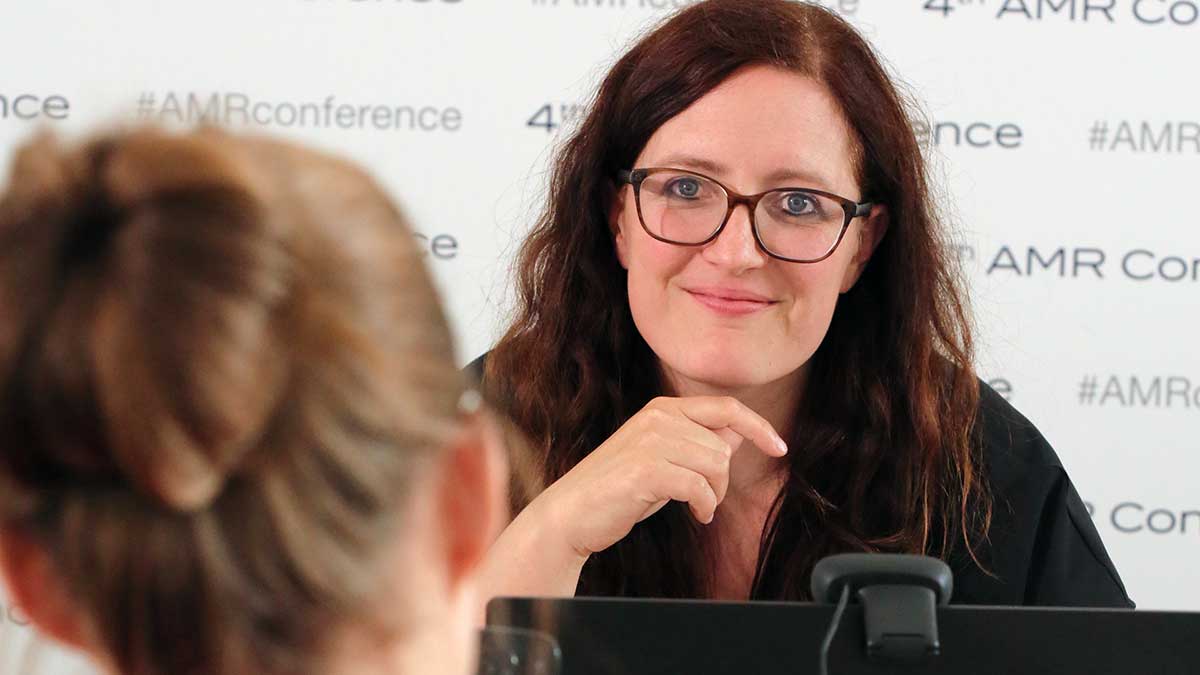Push for pull incentives
Berlin, 30.08.2020 – With around 450 attendees, the five-day digital conference particularly focused on market conditions and financing. SMEs and global partners urged for more pull incentives.
From August 24th to 28th, around 450 international experts discussed a whole range of topics for the global Antimicrobial Resistance (AMR) community at the digital 4th AMR Conference. Whether researching medium-sized companies in biotech or diagnostics, big pharma, diagnostics corporation or clinician, human or veterinary medicine experts, whether investor or scientist – with high-level panels and expert sessions, the conference brought together many international players in the field of antibiotic resistance in an exchange of the latest trends and developments. Organiser BIOCOM hosted the week-long event digitally for the first time this year.
On the first day, a high-level panel of health experts, biotech and diagnostics companies and public institutions discussed the impact of COVID-19 on the AMR ecosystem. For the infection research experts one thing was clear: while COVID-19 puts the health system to an acute stress test, in which ad-hoc solutions must be found, antibiotic resistance with around 750,000 deaths annually is a creeping slow pandemic crisis that has long been there – but doesn’t get the same attention. “We must prepare now so that the slow and creeping crisis does not hit us with even greater force,” emphasized Manica Balasegaram, director of the multi-government-backed global organization GARDP in the opening session on August 24. Rafael Cantón, head of clinical microbiology at the Ramón y Cajal University Hospital in Madrid emphasized that bacterial infections are becoming more and more common as secondary complications in severe COVID-19 courses and that both pandemics are already closely linked in the clinical context. Stefanie Deinhardt-Emmer, diagnostics expert from the Institute for Medical Microbiology at the Jena University Hospital confirms: “Fast and valid diagnostics will play a decisive role in the fight against COVID-19 and the accompanying bacterial infections in the coming winter.”
BEAM Alliance and global partners publish post-conference call to European politics
At the end of the conference, major stakeholders summarized their position in a post-conference paper. Here, the research-based small and medium-sized companies from the European BEAM Alliance, together with international pharmaceutical companies and investors, turn to Europe: They call on the politicians of the EU Commission, the EU Parliament and the governments of the member states to develop new reimbursement models as soon as possible to develop and implement. (Click here for the paper)
AMR Action Fund and “Investor Action on AMR” initiative
On Thursday, August 27, several initiatives within the AMR community were presented that address the challenges in the area of financing. In a session, the AMR Action Fund, founded in July by more than 20 global pharmaceutical companies, presented further details of its future activities. As Silas Holland from the pharmaceutical company Pfizer reported, they want to be operational by the end of 2020 and start the 5-year investment period in the first quarter of 2021. In order to sensitize even more investors to the topic of antibiotic resistance in the long term, the British government presented the “Investor Action on AMR” initiative in a separate session at the conference. Several representatives of different investors – such as the FAIRR Initiative, Rathbone Investment Management and BMO Global Asset Management – explained their view of the AMR investment case. (Note: The session is freely available. A recording can be viewed here on Youtube)
Biotech company AiCuris starts its own incubator program
But biotech companies are also taking the initiative into their own hands, as the example of AiCuris from Wuppertal shows. The infection specialists presented their new AiCubator program at the conference, with which they want to support early approaches in the development of new antibiotics in a targeted manner. This is part of the larger “PREP – Pandemic and Resistance Emergency Preparedness” program with which the biotech company is bundling its infection research activities to develop pandemic solutions. “We want to drive innovations in this area as quickly as possible and want to pool our resources together with external input,” said CEO Holger Zimmermann at the conference.

